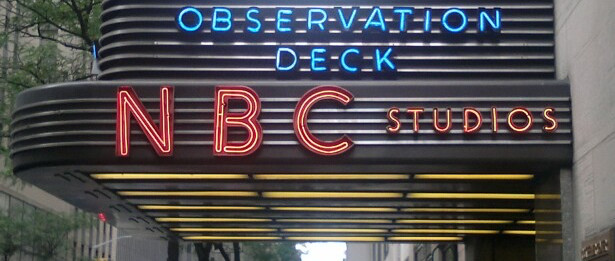Earlier this month President Donald Trump falsely claimed during a press briefing that a malaria drug had been approved as a treatment for COVID-19, the disease caused by the new coronavirus. MSNBC’s Rachel Maddow was among the first major media figures to sound the alarm against letting the president lie on television unchecked. Trump’s off-the-cuff pharmaceutical advice, Maddow said, was “wildly irresponsible from anyone in any leadership role. It’s actually wildly irresponsible if somebody said that to you from a barstool—if any of us could go to bars anymore.”
Maddow has since been joined by dozens of media analysts and journalists calling for new approaches to covering the White House coronavirus briefings, in response to the wild situation of an erratic president broadcasting falsehoods daily to a public desperate for facts and leadership. In these circumstances, we’d be wise to return to Marshall McLuhan’s The Medium is the Massage (1967), in particular his insights regarding “the way media work as environments” [emphasis mine]. “All media work us over completely,” he wrote.
On one level, McLuhan’s point is simple and obvious. Television itself—the medium, not its practitioners—sets parameters for honest representation that deeply affect viewers’ sense of reality. Maddow’s critique of the coronavirus press briefings called into question concepts like “leadership,” “expert,” and “president,” all of which are already media-saturated and television-mediated, laying McLuhan’s observations bare; television invites a specific kind of critique, bounded by its own conventions. MSNBC’s coronavirus coverage is evidence of more than just how dangerous it is to allow Trump to lie on television. The network’s broadcasts themselves are working us over.
For instance: During press briefings, Dr. Anthony Fauci, the director of the National Institute of Allergy and Infectious Diseases and an advisor to Trump, routinely stands not three feet from the president and vice president, near the podium. Reporters covering it were seated less than six feet apart. Last Tuesday MSNBC ran the whole briefing uninterrupted for the better part of an hour, between Chuck Todd’s Meet the Press Daily and Ari Melber’s The Beat, with a panel analysis afterward. But there was no mention, let alone a forceful calling-out, of our leaders’ failure to abide by their own social distancing parameters. This came among segment after segment after segment stressing the value of social distancing in combating the spread of COVID-19. I asked James Hamblin, a doctor and writer for The Atlantic, why everyone was so close together at the White House coronavirus briefings. “Because it is an abstract political challenge to them,” he replied. “Not a reality.”
The same abstraction seems evident in the imperatives of broadcast news, where you can learn about the need for six feet of social distancing at the same time the most respected doctor in the nation is standing three feet away from the president. The lack of consistency at MSNBC is thus a failure of determination, of principle, of consistent and reliable service to the public interest. Broadcast undermines broadcast all day long, as the explicit message fails to conform to the implicit one. Six feet apart, or not? How are we to judge what we’re being shown? “Only by standing aside from any phenomenon and taking an overview can you discover its operative principles and lines of force,” McLuhan told Playboy in 1969.
This brings us to the question of MSNBC’s responsibility to the people producing its own broadcasts. On March 19th, an NBC News employee died of COVID-19. Last Monday, the Deadline entertainment blog published a piece written by an unnamed MSNBC segment producer, claiming that there are several confirmed cases of COVID-19 among network employees, and pleading for the network to shut down its headquarters at 30 Rock, in midtown Manhattan. Even with most MSNBC employees working from home and taking extra precautions to sanitize, “There are still too many people in one building,” the unnamed producer wrote. A door that is ninety percent closed is not, in fact, closed.
Chris Hayes, who has been out in front of coronavirus reporting at MSNBC from the start, told Esquire on the 20th: “You know, 30 Rock does not feel like the best place to be.” He expressed worry that he was at risk of getting sick. Hayes’s coverage on the pandemic has been steadfastly prescient, brave, and intelligent. Since the 23rd, he has been broadcasting remotely, a move we congratulate, on the grounds of public interest more than any other. But that’s not not enough to correct the impression you’re seeing on TV. The message urgently needs to be consistent; all MSNBC hosts, producers and management must practice what they preach.
Maria Bustillos is the founding editor of Popula, an alternative news and culture magazine. Her work has appeared in the New York Times, The New Yorker, Harper’s, and The Guardian.


